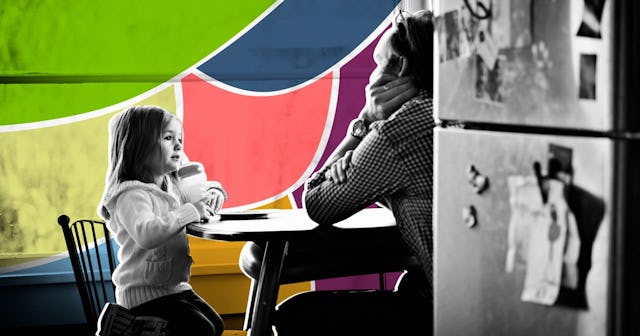Trying To Get My Family To Understand The Riots Is An Uphill Battle, But I Refuse To Stop

My wife was on the phone with her mother the other day in the kitchen, chatting about the George Floyd murder and resulting protests and riots. I could hear my mother-in-law asking questions about the protests. All of it was pretty civil, but I will admit, the conversation sounded like two people living in two very different worlds, discussing the same historical event.
While we have never discussed our party affiliation openly, it’s pretty easy to guess that Mel’s parents are Republicans, while Mel and I are registered Democrats. They watch Fox News, while we listen to NPR. We live in Oregon, a blue state, while they live in Idaho, a red state. And as Mel and her mother spoke, they discussed some common themes I’d seen rolling around online, such as “paid protesters” and “Antifa being the REAL problem” and “how killing an unarmed black man was tragic, but it doesn’t justify the destruction of property.”
And like so many families in this exact situation, Mel reasoned with her mother. She told her how ridiculous the idea of paid protesters sounds, and how Antifa could be causing some problems, but ultimately she was missing the point by focusing on broken glass and not a broken system. All of it sounded exactly like the conversation I had with my sister the other day, and my mother, and any number of my predominantly-white Republican family.
I have seen this exact conversation play out online between family members and friends, the same talking points going back and forth. It can be exhausting and irritating to chat with my family about politics, and it can feel like I’d rather avoid the conversation altogether — or just cut the family member from my life because I don’t agree with their viewpoints. But no matter how exhausting it is, it’s more important than ever to have these hard conversations, and I will tell you why.
Right now, in 2020, social media analytics show news from sources you want to hear from, and 24/7 news stations repeat the same talking points, all nicely packaged with information that supports a single ideology. The echo chamber effect is solid.
A common theme that I’ve seen online right now is unfriending or blocking someone whose viewpoints you disagree with. And I get that urge.
I fully support marginalized people taking out the trash, as it is not their job to educate or engage with people who are denying their humanity. There are people online that view some nasty, racist garbage, and in those situations, it is important to call these people out, or block them so they will not have a platform.
Samuel Corum/Getty
But there is a difference between being vile online and having a different viewpoint. What we really need right now is to not make that echo chamber any tighter. What we need is more conversation: not to turn away in disgust from those who see things differently, but to create a dialogue, even when it’s hard.
Recently I published an essay for Scary Mommy about how understanding the riots is ultimately an act of empathy. Riots happen when people have had enough. They happen when a group of people have asked for help, for safety, for security, for the necessities of human life, but no one has listened. It happens when people keep saying the same thing calmly, when they have brought up injustice time and time again, in as many peaceful ways as possible, through protests, celebrities, and news coverage, but nobody is hearing the message or validating their pain. They happen when the evidence of the injustice is videotaped for all to see, but there are no convictions.
When my family asks me why the riots are happening, I give them that same message. I ask them to really think about how angry and unheard they would have to be to riot.
The people posting online about how they are more outraged by destroyed property than a desecrated life already feel heard. They feel safe. But there are a lot of people feeling like they have nothing to lose right now, because it is as bad as it’s going to get, so they might as well burn it down and start fresh — and that is understandable. It is also a dangerous state for society to be in.
For those who don’t understand this, I ask them to use empathy. 90% of the time, they pause, because they have never heard this line of thought before. After all, most of us don’t actively seek to understand the other side of an argument; rather, we seek out people who support our own. And it is in those moments I am left to realize that they may have never received that message if I hadn’t given it to them. The news sources they follow, the people they chat with over the phone, the social media feed they scroll through each day, would never have given it to them. Because people get their information from sources who think and believe like them, thus affirming that their viewpoint is the right viewpoint.
For this reason alone, giving your family and friends an alternative viewpoint might be the only way they can find that empathy we need in America. These are the conversations that will ultimately break the echo chamber. And yes, they are uncomfortable. Yes, they can grow tense. But if we are really going to start talking, and dismantling systemic racism and revamping our processes, they have to happen. This is the job of white people (like me). It’s not the job of the Black community members who are being continually oppressed and irreparably harmed.
Explaining and seeking empathy may not be as easy as clicking the “block” button, but it’s never been more important. Lives literally depend on it.
This article was originally published on